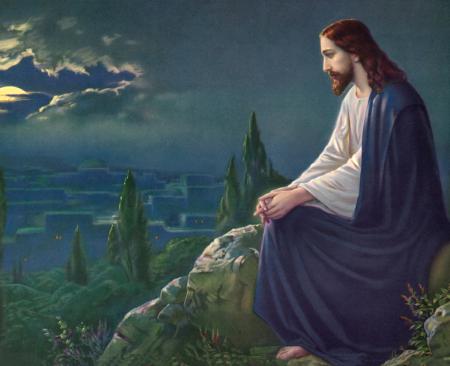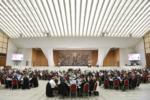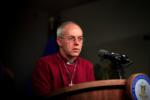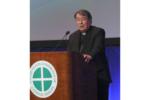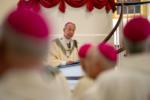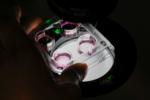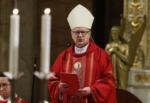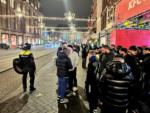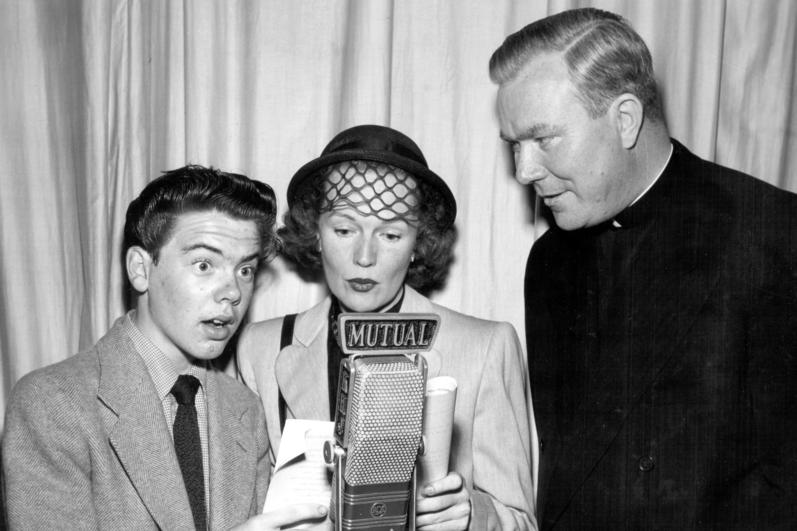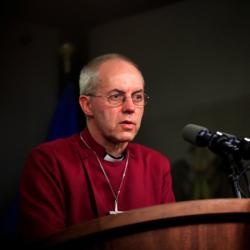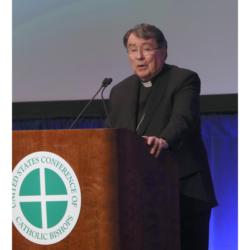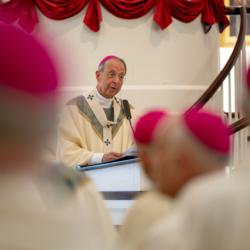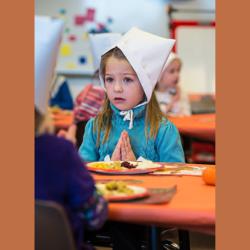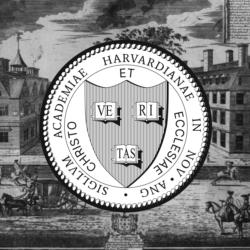'Rosary priest' Father Peyton: 'The family that prays together stays together'
(OSV News) -- "The family that prays together stays together" has been an international Catholic catchphrase for 80 years, a truism that is instinctively self-evident even if it admits of exceptions. Another popular slogan, "A world at prayer is a world at peace," likewise proposes prayer as a prevention or remedy for conflict and disunity on a much larger scale.
Both axioms owe their origin to the late Father Patrick Peyton, a priest of the Congregation of Holy Cross and longtime promoter of the family rosary. October is the month of the rosary, with the feast of Our Lady of the Rosary Oct. 7.
Throughout the latter half of the 20th century, Father Peyton was perhaps the best-known "media priest" this side of Archbishop Fulton Sheen. Unlike Archbishop Sheen, however, Father Peyton stayed mainly behind the scenes, hosting a nationally broadcast radio program for more than 22 years and producing more than 70 films and television programs through his Family Theater Productions, in addition to his numerous rosary rallies conducted around the globe.
The man they would someday call "The Rosary Priest" had his inauspicious beginnings in Carracastle, County Mayo, Ireland. Born Jan. 9, 1909, he was the sixth of what would become nine children in a poor but devout farming family. His father was asthmatic and often unable to work, so all family members did what they could to manage the farm and make ends meet. At one point, Patrick lived with a nearby family and worked on their farm. There he launched his first prayer crusade, one might say: He persuaded the father to initiate a regular family rosary, something that was a daily ritual in the Peyton household and would prove highly influential in Patrick's religious formation.
"From my earliest memories, I saw my father with the rosary beads in his hands and my mother holding hers," Father Peyton would write in "All for Her," his 1967 autobiography. "My older brothers and sisters and I knelt around them, praying. … Because of the daily family rosary, my home was for me a cradle, a school, a university, a library and, most of all, a little church."At the age of 19, Patrick and his older brother, Thomas, immigrated to the United States, joining their three older sisters who previously had made the move to Scranton, Pennsylvania, where the Peyton children had maternal relatives. The brothers found gainful employment, but in little more than a year, both would answer the call to the priesthood and enter the seminary of the Congregation of the Holy Cross at Notre Dame, Indiana.
Two years from ordination, Patrick was stricken with tuberculosis and was given little hope for recovery. Inexplicably cured 15 months later, he credited the miracle to the intercession of Mary, to whom he had turned in prayer. By a special indult from the Vatican, Patrick was able to be ordained alongside his brother in 1941, despite the formation time lost because of the illness.
A mere seven months after his ordination, Father Patrick Peyton felt inspired by God to start the Family Rosary Crusade. He was motivated in part by his sincere belief that prayer was the answer to the breakdown of the American family, and in part by his eagerness to repay Mary for restoring his health. He also believed the family Rosary would bring an end to World War II and bring special favors from Mary to America.
Over the next several years, Father Peyton went about soliciting support and seed money for his crusade while still fulfilling his pastoral work as a Holy Cross priest. By 1943, he had a weekly 15-minute radio slot for reciting the rosary in the Albany, New York, area. In 1945, his weekly half-hour "Evening Time" program was broadcast on the local ABC affiliate.
Wishing to go national, Father Peyton secured support for "The Catholic Hour" on the Mutual Broadcasting Network. The program was launched on May 13 -- which was Mother's Day, the feast of Our Lady of Fatima, and a day of thanksgiving for the end of the war in Europe, as Father Peyton would note. The young priest had on the program Cardinal Francis Spellman of New York and beloved singer and film star Bing Crosby as a special guest, and invited the Sullivan family of Waterloo, Iowa, who had lost all five sons in the sinking of the U.S.S. Juneau, to lead the glorious mysteries of the rosary. Despite poor preparation, the show was a resounding success.The participation of celebrity Catholics quickly became a hallmark of Father Peyton's crusade. He traveled to Hollywood and enlisted the help of Loretta Young, Ethel Barrymore, Gregory Peck, James Cagney, Maureen O'Sullivan and many other stars. His shy humility was matched by his zeal and sincerity, combining for a magnetic charm. "Somehow, when Father Peyton asked you for something, there was no way to say no," actress Jane Wyman once said."These artists of stage, screen, radio and television used the mass media to make the world a village where families of all faiths and of none could come to know that 'the family that prays together stays together' and that 'a world at prayer is a world at peace,'" Father Peyton would write in his autobiography. "Human reason and wisdom would never have set the Family Rosary Crusade on the course it took in those beginning years. To Our Lord must go the credit for inspiring the best and only way to go: the mass media.
In 1947, he launched "Family Theater of the Air," a series of nonsectarian dramas extolling the value of family prayer. Response was strong and positive, and soon the program was picked up nationally and around the world. Soon there were special broadcasts on the mysteries of the rosary and feature films produced for the new media of television. Business mogul J. Peter Grace became a major financial backer for Father Peyton's work and helped establish the Family Prayer Foundation to solicit major donations to support the media apostolate.
From the 1950s and into the late 1960s, International Rosary Crusades were a major focus of Father Peyton's ministry. Securing large gathering places and aided by hundreds of volunteers in each location, he took his message to six continents and led the rosary in front of sometimes hundreds of thousands of faithful at a time. During one span in the mid-1950s alone he spent four months conducting rallies in 59 dioceses and archdiocese in India, Pakistan, Myanmar, Sri Lanka, Malaysia and Thailand. In the United States, too, he would fill stadiums and amphitheaters with his message of Marian devotion and family prayer.
Family Theater enjoyed resurgence in the 1980s as Father Peyton began producing new short films on rosary mysteries and persuaded Princess Grace of Monaco to participate in three of them. He revived rosary crusades overseas, praying with some 2 million people at a 1985 rally in the Philippines. Back home, billboards and booklets promoted family prayer and Marian intercession.His health was in decline even as he announced a campaign to collect a million rosaries for the people of Russia. He died June 3, 1992, at the age of 83 and is buried in Easton, Massachusetts. Father Peyton's cause for canonization was opened in 2001. Pope Francis declared him venerable in December 2017.
Today, 32 years after his death, his legacy of promoting prayer and the rosary continues through Holy Cross Family Ministries, which offers prayer events, formation ministries and family-focused media.
- - -
Gerald Korson writes from Indiana.
